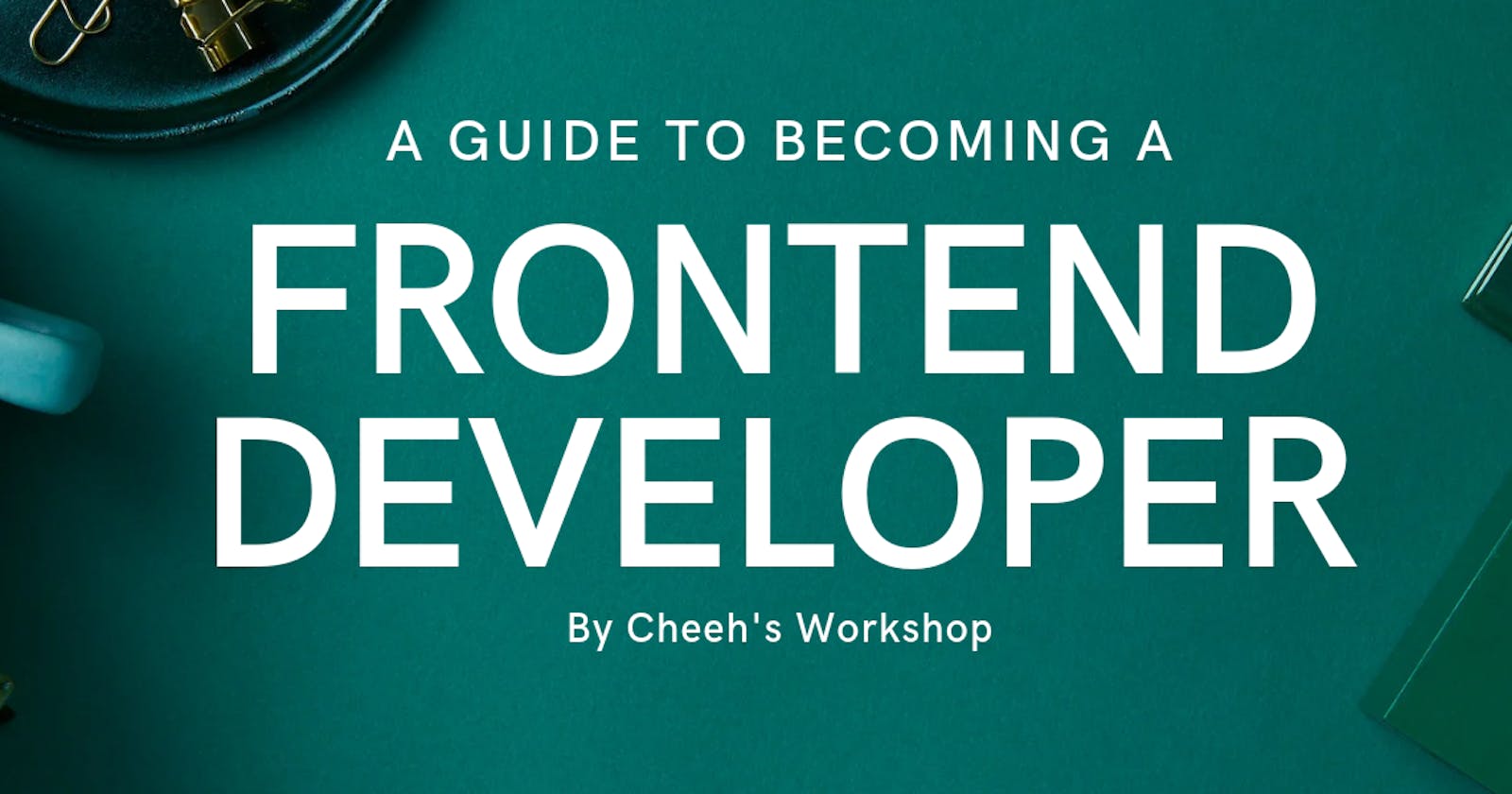A Guide To Becoming A Frontend Developer.
The basics of starting a journey into Frontend development and helpful tips.
As a Frontend Developer, who chose the path of self-teaching, there are a lot of things that run through my mind. For example, getting to set a daily schedule can be quite confusing and questions like, how many hours should I code?, what are the best resources to use?, what roadmap should I follow, who are the people I can look up to in my field of aspiration? Searching through Google can be strenuous, especially with the numerous amount of materials uploaded daily, and as a beginner, you tend to get lost in the world of so much information. Don't panic, it's not difficult as you imagined, with the few tips I will be sharing, you're sure to get answers and I hope this provides a solution to your frequently asked questions and as a guide to starting your journey as a Frontend Developer, Just like I am and what I will be sharing are strictly what I followed and worked for me.
I will be sharing important information that will be in the guide below.
ROADMAP
What is Frontend development?
Front-end web development is the practice of producing a Graphics User Interface (GUI) for a website or Web Application so that a user can see and interact with them directly.
The Frontend technologies needed include:
HTML(HyperText Markup Language): This is the foundation of every website, it is used to display web pages in the web browser and It also represents the contents of a web page.
CSS (Cascading stylesheet): This is the design and layout part of the web page, it is used to add styling to the Html content.
A Scripting language: The main use of a scripting language is to add functionality to the web page. JavaScript is more popular and some also learn Python.
CSS Pre-processor: SASS/SCSS.
CSS Frameworks: Bootstrap/ Tailwind.
Javascript Framework: React/ Angular/ Vue.
Version control system: Github.
THE DEVICES TO USE
Do you know if it's possible to use a smartphone to start coding? if you don't have a Personal computer at the moment don't feel discouraged, a personal computer is advisable, but you can start with a smartphone and later move on to using a Personal computer. I will be sharing more on that as you read through the article.
THE RIGHT TOOLS TO INSTALL
You will need a code editor, preferably an Integrated Development Environment (IDE)- software that acts as a text editor, debugger, compiler, and browser to display the code in a real-life environment. If you're using a PC, there is a list of options, such as Visual Studio Code (mostly used), Sublime Text, Atom, Brackets, and Vim. For smart devices, there are Spck editor (IDE for smart devices) and Dcorder from the Google play store. You can use any browser of your choice but go for Google Chrome and Mozilla Firefox, they have great development tools.
ONLINE RESOURCES TO GET STARTED WITH
Learning Platforms:
Freecodecamp.org (free)
Codecademy.com (free
Coursera.org (paid)
Udemy.com (paid)
Sololearn.com (free)
W3schools.com (free)
Alison.com (free)
YouTube Channels:
Traversy Media
freecodecamp
The Net Ninja
Kevin Powell
Coding Challenge Platform:
cssbattle. dev
Practice-based platform:
Codewell. cc
These are more than enough for a start and gradually you get to know which is best for you to learn. Always make sure you practice, because that's the key to understanding.

SETTING UP YOUR DAILY CODING ROUTINE
Questions that may come to your mind will be how many hours per day are needed for me to work ?, should I do it during the daytime or at night? For a start 4 hours is advisable, but it also depends on the individual, your daily schedule, and so on. Make it a habit to code every day to build up consistency, which is key. You don't need to rush, gradually you get to your goals. If I'm working on a project, I use 6-8 hours daily; if it's just regular learning, I use 4-6 hours. I'm more of a night developer, that's when I get the best ideas.
BALANCING YOUR HEALTH
Exercise the body: Always take time to do some workouts, it helps keep your body fit and energized.
Sleep: Don't get carried away by your coding, your body needs to rest and your mind refreshed. I stated above about being a night developer and I don't take my sleep for granted, I carefully plan out my time and know when to take naps, you will surely need it.
Posture: Bad posture can cause harm to the body, you will need to get a chair and table that are very comfortable to work with and make sure your back is well-rested and your neck positioned in the right manner, to avoid pain.
Eating: Always take your diet seriously, coding can get you carried away but never forget to eat and eat properly. In addition, Once you start spending lots of hours on the monitor or laptop screen, you may need to get anti-blue light glasses or Photochromic lenses, to protect your eyes.

Coding for extremely long hours will cause discomfort to your body and physical or mental health.
CONCLUSION
I always get to see the question of how can a beginner start his development journey and there are always lots of random responses. I chose to start my first blog post by Sharing how I started and the resources that guide me. A site like StackOverflow helps developers to get answers to questions and solutions to their projects, it always comes in handy. As you take that bold step in becoming a developer, always have in mind that building connections are a necessity and you can do so by sharing your learning on different platforms (Twitter, Linkedin....), where you can connect and learn from others, no knowledge is a waste.
